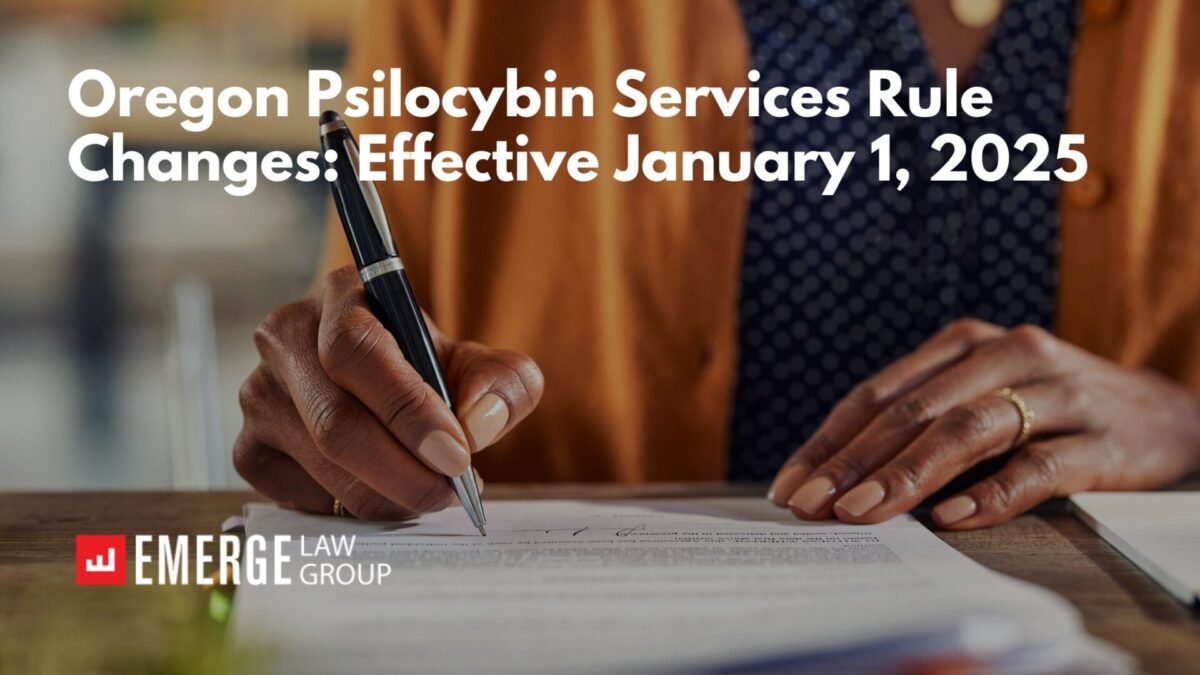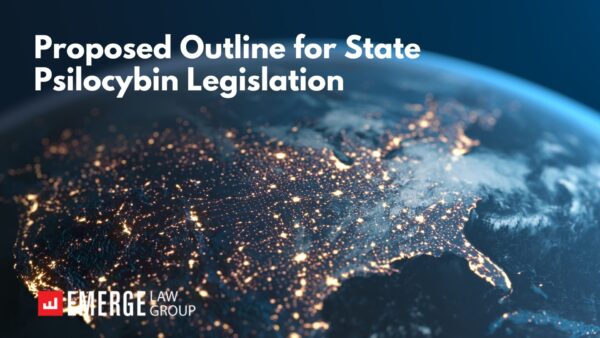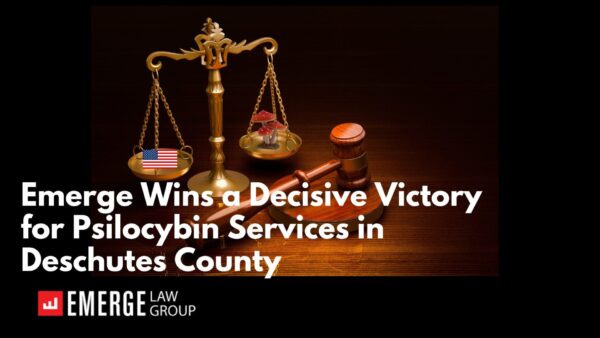Late last month, the Oregon Health Authority (“OHA”) adopted its final Oregon Psilocybin Services (“OPS”) rule revisions, which become effective on January 1, 2025. With some success Emerge Law and several licensees collaborated on public comment to request that OHA revise or rein in some of its more onerous proposals. The adopted rules impact nearly every aspect of OPS and will undoubtedly increase the costs in time and money to operate in the Oregon psilocybin space.
We have compiled a list of some of the most impactful changes below, but our list is not exhaustive and all licensees should familiarize themselves with the adopted rules to the greatest extent possible to prepare for the new year.
- “Culturally and linguistically responsive services” – A facilitator must ask a client whether the client requests any “culturally and linguistically responsive services,” which are services that “are responsive to diverse cultural beliefs and practices, preferred languages, literacy and other communication needs of clients.” If the client requests those services, the facilitator must provide a description of such services the facilitator and intended service center offer. Service centers and facilitators must create plans documenting such services and for referring clients to other facilitators or service centers if they are unable to provide the requested culturally and linguistically responsive services. OAR 333-333-1010(26); -4520; 5000(7); -5040(1)33; -5075.
- Client records – All “client records” and copies of “client records,” including those created or collected by a facilitator, cannot be stored anywhere other than at a service center, even if, as we understand it, a client or potential client has not scheduled or undergone an administration session at a service center. A facilitator must transfer certain client records to a service center within 15 days of creation of the records or prior to the client’s administration session at the service center. -4820(1)(a), (3); -5100(1), (6).
- Client chosen administration session observer – A client may choose any person over 21 to serve as an “observer” at their administration session. -5070(2).
- Facilitator restrictions – Prohibition against a licensed facilitator from “supervising” individuals experiencing psilocybin outside a service center, unless an exception applies. -5120(14); -5130(4)-(6).
- Back-up facilitator requirement eliminated – OHA removed the rule requiring the availability of a back-up facilitator for each administration session. (Formerly -5200(7).)
- Reduced approval periods – Facilitator training program curriculum approvals and worker permits valid for only one year (formerly five years). -3010(8)-(9); -3035(5); -4070(4).
- Increased training hours – Additional 8 hours of required instruction for facilitator training programs, plus 4 hours of required continuing facilitator education. -3050(1), (3)(d); -3300.
- Out-of-state training practicum students – Designated training program practicum sites may function as practicum sites for any authorized psilocybin training by another state. -3070(4).
- SB 303 Data – Service centers must begin collecting and reporting on a quarterly basis, certain demographic information from clients; new and renewal OPS license applications must also include demographic information about each applicant on the license; existing licensees must provide their demographic information to OHA by March 1, 2025. -4000(3)(e); -4250(2); -4900; -4910; -4930.
- Duty to report misconduct – Increased duty for licensees, licensee representatives, and permit holders to report violations of ORS 475A and OPS rules. -5140.
- License surrender – Significant increase in requirements for surrendering a service center license. -4280; -5040(1)32.
- More paperwork – Vast increase in required forms, written procedures, and other paperwork. In most cases, OHA appears to require licensees to use OHA’s forms (though not all such forms currently appear on the OHA website). -4200(1); -4300(6)(b); -4400(6); -4450(4); -4460(1)(c)-(e); -4470(2); 4820(6); -5075; -5080(1); -5120(7); -5150(1); -5240(3)(a); -5250(5)-(7), (9).
- Compliance investigations – New rule regarding compliance investigations. -6160.




